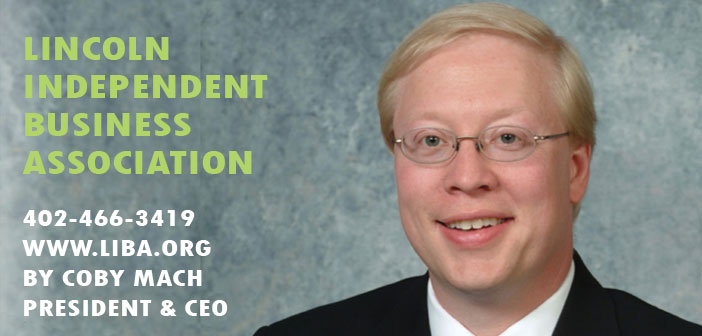Land Banks – Take 5
Nebraska State Senators have tried several times to expand land banks across our state. The Lincoln Independent Business Association (LIBA) has prevented this bill from becoming statewide law on several occasions. A land bank is a quasi-government agency established by municipalities to acquire and sell vacant, abandoned and foreclosed properties for the purposes of redevelopment. There are approximately 75 communities now operating formal land bank programs across the country.
Land banks sound like a good idea on paper, but we only need to look to St. Louis to see how a land bank can fail. The St. Louis government run land bank is now the largest property owner in St. Louis. They cannot even afford to mow their land and have resorted to giving away property if a neighbor will simply agree to mow the weeds. Cities in Ohio and Oregon have also resorted to “mow to own programs.”
In 2013, the Governor signed legislation to permit Omaha to establish a land bank. Earlier this year, Governor Ricketts vetoed a bill that would have allowed this government overreach to expand statewide. The Legislature is currently gearing up for another attempt to pass legislation to permit land banks across the state. This month, we traveled to Grand Island, Nebraska for yet another Legislative hearing on land banks.
LIBA has several concerns regarding legislation to allow for Nebraska Municipal Land Banks to have authority statewide. We believe the legislation will lead to expanded government involvement in property development with very few limitations on the authority of land banks. The bill that was considered during the last legislative session would have allowed land banks statewide to purchase any residential, retail, commercial or industrial property as long as buying the land is deemed in the best interest of the community. The bill also gives land banks the authority to tender an “automatic bid,” which allows land banks to acquire property over competing interests by default.
The bill granted these broad powers to land banks with very few checks on their authority from the public. For example, the bill allowed for the issuance of debt and allowed the land bank to bond without a vote of the people. In addition, the members of the land bank board are appointed, not elected, which means they are not accountable to taxpayers, even though the decisions they make directly affect them. Land transactions have typically been handled through the city council’s public process. Putting an unelected governing body in place to handle land transactions will not only complicate the process, it will reduce transparency.
The private sector will also have to compete directly with land banks without being afforded the same tax breaks or benefits. Land banks are permitted to hold land for any amount of time, and collect rent, lease, and sell land with the benefit of being exempt from paying taxes. If the land bank does buy and sell the property, the land bank gets 50 percent of the property tax for five years. Finally, when a land bank buys a tax-delinquent property, it may discharge and extinguish claims for taxes on that property. None of these tax breaks or benefits are available to private developers.
Meanwhile, the tax breaks afforded to the land bank will come at the expense of the taxpayer. Land banks would decrease the property tax base because any time it buys land, the land will be immediately taken off of the tax rolls. This will decrease the property tax base and put more pressure on the private sector to bridge the tax gap.
 LIBA studies and promotes these types of issues that are important to businesses and our community. If you have an interest in joining LIBA, please call me at (402) 466-3419. LIBA membership is not restricted to just businesses. We also have “individual” memberships for those who want to help influence our local government decisions.
LIBA studies and promotes these types of issues that are important to businesses and our community. If you have an interest in joining LIBA, please call me at (402) 466-3419. LIBA membership is not restricted to just businesses. We also have “individual” memberships for those who want to help influence our local government decisions.
For more information on LIBA, visit Liba.org.

